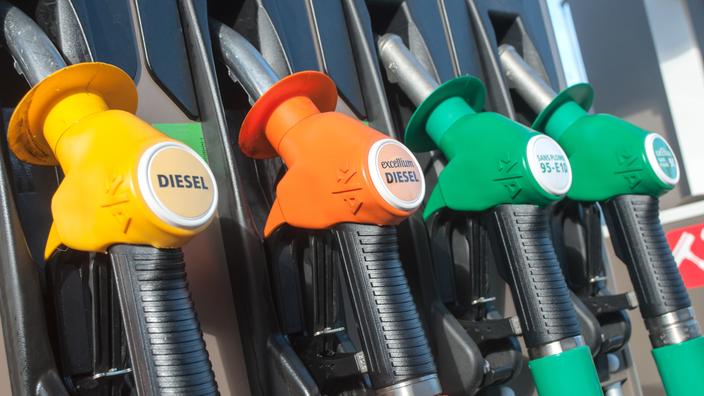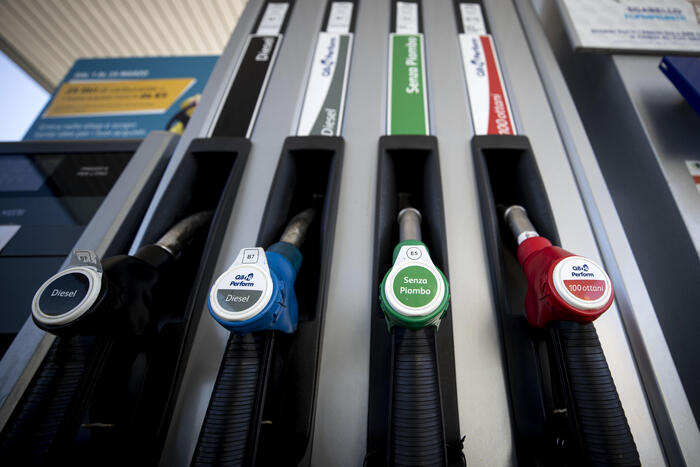When, a few weeks before the first winter frosts, the figures are linked on gas and electricity bills in France, it is cars thirsty for fuel that are waiting in front of gas stations on the other side of the Channel.
Three years earlier, at this same time, France was set ablaze with yellow after the announcement of the carbon tax increase.
If energy often ignites the French, where do the words we commonly use to describe it come from?
To discover
Passionate about word games?
Discover the Figaro games app
Digital event of the literary Figaro: "How to get published?"
In the secret of publishing houses ”
To read also "
Gazer
", "
broken mouths
" ... Do the "
yellow vests
" know what they are talking about?
Fuel oil, fuel oil, gas oil, petroleum: an inexhaustible linguistic source
In the great series of
energies
, from the Greek "
enérgeia
"
,
"
force in action
", opposed to "
dýnamis
", "
force in power
", is first of all the general term of
fuel
. Itself is derived from carbide, a chemical compound based on carbon. Fuel therefore refers to the very functioning of the car. A machinery that feeds on
essence
, a metonymy from the Latin "
esse
", "to
be
", in the same way as "
the human essence
" or "
the essence of vanilla.
», An intrinsic component of the thing. In this case, the gasoline to fill an automobile is obtained after distillation of
petroleum
, from the Latin "
petroleum
", composed of "
petra
", the "
stone
" and "
oleum
", "
the oil
" or literally "
the stone oil
”.
This black gold was then supplemented at the end of the 20th century with the fuel imagined by Rudolf
Diesel
, a German engineer who still bears his name today. A hydrocarbon, also called
"
diesel
"
, built on the American word "
diesel
". But what are
fuel oil
,
fuel
oil
or even
hard coal
? The first is a derivative of the English "
fuel
", thus designating any
fuel
, literally which "
can burn
», Based on wood, petroleum or charcoal. Fuel oil comes from the same Russian word which means both the remains, waste and the oil stain, the greasy product. Finally, flooding Zola's novel, coal, now obsolete, is a type of coal. By analogy, we sometimes speak of black coal for solar energy, blue coal for hydraulic power. The rock having thus given way to the industrial power that it represented.
If it is possible to warm up with fuel, 21% of new homes and 75% of new multiple units today use a
heater
to
gas
, derived from the Flemish "
geest
", "
boil
". For hot showers and baths, it is in a
boiler
, from the Latin “
caldere
”, “
basin
”, that the water is boiled to warm the bodies. When energy comes from the ground, we speak of “
geothermal energy
”, from the Greek “
geo
”, “
the earth
” and “
thermos
”, “
heat
”: of “
hydrothermal
energy
”
»When the origin is hydraulic ... Declinable at will, energy sources are a bottomless well ...
"
Water in gas
", "
keep up to date
", expressions of energy
A plurality of the vocabulary of energy which has also generated many expressions: "
there is water in the gas
", "
it is not a light
" or "
I keep you informed
". But where does it come from? When the atmosphere becomes electric, it is possible to appeal to this image dating from the 19th century. While the fireplaces were still heated with coal gas, drops of water sometimes mixed with the gas, creating an orange flame and then rapid small explosions. The latter recalling screams, slaps, sounds of anger and arguments.
"
We then keep up to date
." In the 18th century, we wanted to give each other news, to pass on “
what is known, in progress
”, the primary meaning of “
current
”, then transformed to designate electricity in motion. Misinterpreted, it was in the twentieth century that this expression took on its current meaning when it was changed to "
we stand in the juice
", the "
juice
" meaning in slang the electric current. In the same way, we say "
take a shot of juice
", the word referring to the acid water of accumulators in the twentieth century.
"
He is not a light
". That's a nicely worded criticism. From the 13th century the word "
light
" means "
lucidity
". However, it was not until the 17th century to see it linked to intelligence. Hence the Age of Enlightenment. Two hundred years later, the Lumière brothers arrived, inventors of cinema. Perhaps they were predisposed to play with images and lighting.
Other expressions draw their inspiration from the words of energy such as "
farting a cable
", "
farting a lead
".
However, even though France is generally referred to as the Land of Enlightenment, it is often said to children who forget to flip the switch that "
this is not Versailles here
".
Light bulbs that have been going out “
for ages
”.
The latter does not call on candlesticks but on the old unit of time, the “
lustrum
”, a time long of five years.
A form of renewable energy.






